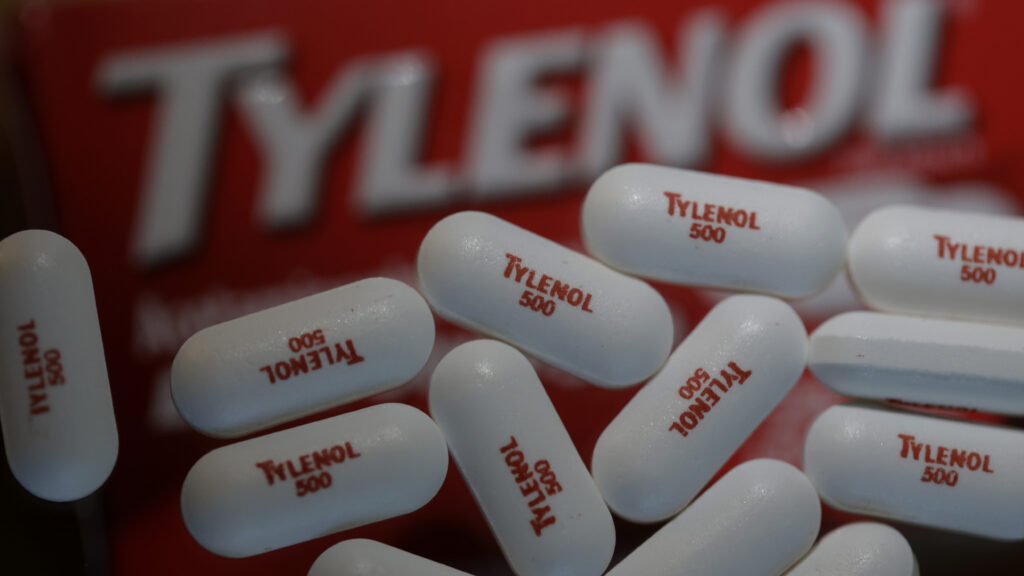Copyright STAT

Get your daily dose of health and medicine every weekday with STAT’s free newsletter Morning Rounds. Sign up here. Greetings from sunny San Diego! This is Jonathan Wosen, West Coast biotech & life sciences reporter, filling in for Theresa. The federal government may still be shut down, but our newsroom is moving at, dare I say, warp speed. Advertisement Today’s lineup features a clear-eyed analysis of the recent White House announcement on obesity drugs, yet another reason to doubt the alleged link between Tylenol use during pregnancy and autism, and a spellbinding obituary of James Watson by a beloved former colleague. The ‘B side’ of James Watson’s record James Watson, co-discoverer of the structure of DNA, died last week at age 97. His passing marks the end of an era in biology that some called “the eighth day of creation.” But the record of Watson’s life had a B side: a long, outspoken history of racism and sexism that made the Nobel Prize winner a scientific outcast by the end of his life. If you read anything from this newsletter, I urge you to read Sharon Begley’s masterful remembrance of Watson, which draws on oral history, public statements, and interviews with people who knew him for decades. One key insight: Watson’s career was marked by a transcendent discovery driven more by an intuitive ability to identify big, important scientific problems than a detailed understanding of molecular biology. In time, he learned to trust his gut about race and IQ, frequently arguing without evidence that people of African ancestry are less intelligent than other races. “The man who co-discovered the double helix, perhaps not surprisingly, regarded DNA as the ultimate puppet master, immeasurably more powerful than the social and other forces that lesser (much lesser) scientists studied,” Begley wrote. Advertisement Read more from Begley’s story, which she pre-wrote before her own passing in 2021. Is a White House deal with obesity drugmakers a game-changer? It’s complicated President Donald Trump has touted a deal with Novo Nordisk and Eli Lilly to make their powerful weight loss therapies available to more patients at lower prices. But the true impact of the deal will depend on a number of factors, writes STAT’s Elaine Chen. The agreement would make the Novo and Lilly drugs, Wegovy and Zepbound, available to more Medicare beneficiaries for a monthly copay of $50, less than the typical out-of-pocket cost for this class of treatments currently. But it’s unclear whether prices for these drugs will also go down for people with commercial insurance, experts warn. Observers also point out that the White House’s plan to sell these drugs directly to patients through the administration’s TrumpRx platform may not actually be that affordable, since many patients may still need to pay $450 to $500 a month for the therapies. Another looming question: Would these companies have lowered prices anyway? “I don’t think they would enter into an arrangement that would make them materially worse off than they anticipate that they will be,” said Benedic Ippolito, a senior fellow in economic policy studies at the American Enterprise Institute. Read more. Amgen and Merck report positive results for cholesterol-lowering drugs About 1 in 10 Americans over 20 has high cholesterol, which comes with an increased risk of heart attack and stroke. That’s despite the availability of statins, a class of drugs that became the best-selling medicines in the world. At the American Heart Association meeting in New Orleans this weekend, STAT’s Liz Cooney reported on data from two pharma giants taking a different tack to control cholesterol — targeting PCSK9, a protein that controls levels of LDL, or “bad” cholesterol. Amgen presented data showing that its injectable medicine, Repatha, lowered first heart attacks by 36% in people with high cholesterol but no history of serious cardiovascular events. The drug has been on the market for nearly a decade, but it’s the first time anyone has shown a PCSK9 drug can prevent first heart attacks, Jay Bradner, Amgen’s executive vice president of research and development, told Cooney. Advertisement Meanwhile, Merck is working on what it believes could be a more convenient option for patients: oral PCSK9 inhibitors. The company shared that its experimental drug, enlicitide, reduced LDL cholesterol by up to 60% and that the therapy was as well tolerated as a placebo. An ongoing late-stage trial is tracking whether treatment translates into better cardiovascular outcomes. Looking to run an NIH institute? You’ve got two weeks to apply If you’ve ever wanted to run an institute at the nation’s top funder of biomedical research, I have good news: There are six director openings across the National Institutes of Health’s 27 centers and institutes. I also have bad news: You have two weeks — or less — to apply. The National Library of Medicine, National Human Genome Research Institute, and institutes dedicated to general medical sciences, child health and human development, and dental and craniofacial research are among those looking for new directors. Many of these openings were announced on Nov. 7 and are set to close on Nov. 21. The leadership vacancies are yet another sign of intense turmoil within the agency during the first year of Trump’s return to the White House, as several institute heads were ousted earlier this year. If you’re pregnant and in pain, it’s OK to take Tylenol Despite President Trump’s claims, scientists don’t have enough evidence to say acetaminophen use during pregnancy is linked to autism, according to a new review of the literature published Sunday in The BMJ. After looking at nine systematic reviews investigating a potential link between childhood autism and ADHD and paracetamol use during pregnancy (it’s still acetaminophen, just British), the authors found very weak associations, tons of confounding factors, and no legitimate biological mechanism. The authors recommended that pregnant people continue to take the medicine to treat pain. The findings rebuke claims by President Trump and top federal health officials that acetaminophen, the active ingredient in Tylenol, should only be used as a last resort during pregnancy. They said the changes, which would constitute a major shift in how doctors treat pain, were necessary to combat the rising rates of autism prevalence in the United States. But as STAT’s Matt Herper wrote at the time, the science didn’t match the hype. Advertisement Are you pregnant, a doctor, or an FDA employee whose life or work changed because of Trump’s September presser? Reach out here. — O. Rose Broderick It’s time to reward care rather than cure services Despite our aging population, there are relatively few geriatric-trained physicians, as young doctors saddled with debt tend to pick more lucrative fields. But writing in a STAT First Opinion, Daniel Plotkin has an idea for how to change that: require Medicare to pay doctors and other health care professionals more for spending time and fostering relationships with patients. Plotkin, a geriatric psychiatrist, acknowledges that the proposed change would require recruiting, training, and compensating more primary care physicians. He also adds that the scheme would require an attitude change. “It’s easy to understand why the soft care model of caring for old people goes against our grain,” Plotkins writes. “Indeed, our love for technical procedures and the revenue generated by doing a lot of them wins out, so we spend most of our health care dollars on expensive, low-yield procedures toward the end of life.” What we’re reading



